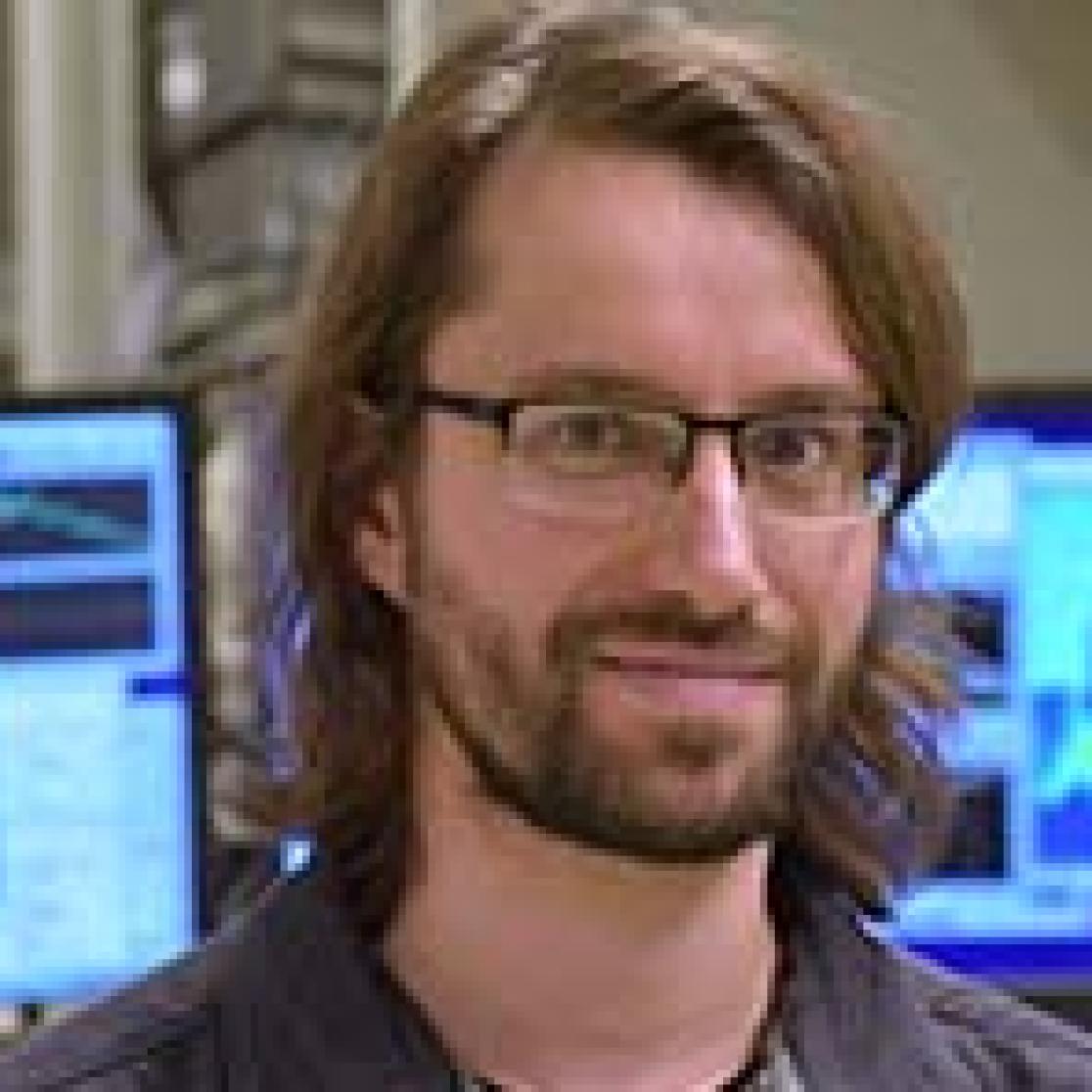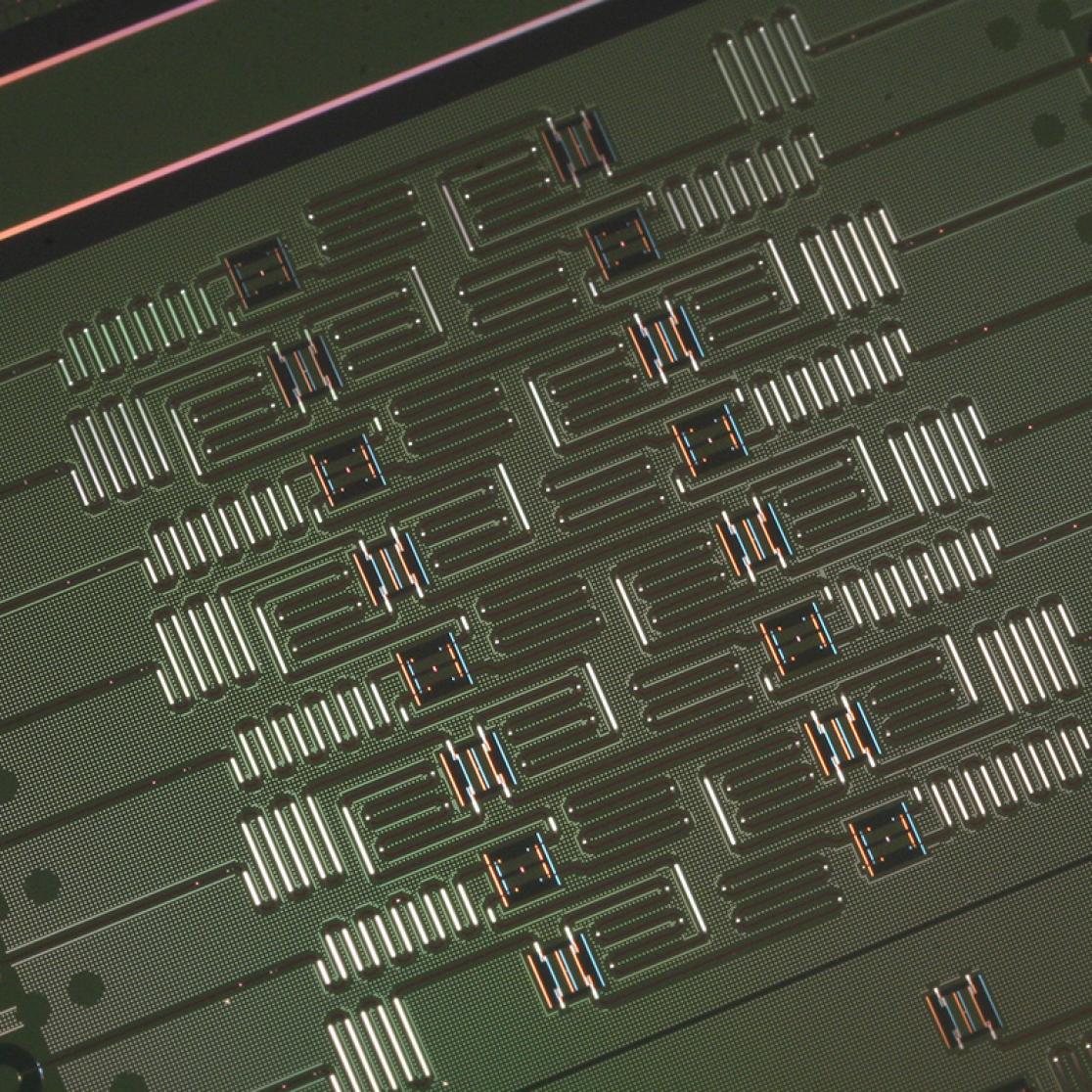Quantum Computing Research @ UM
"Just do the calculations" is a common saying in the field of quantum computing, the development of software for quantum computers. Everything in this field is new; simply doing the math is often the best way to proceed. At Maastricht University, an interdisciplinary group of scientists works in quantum computing research, they try to do more than just the math. David Mestel and Jérémie Gobeil describe the unsolved problems in quantum computing that they are researching.
David Mestel (Department of Advanced Computing Sciences) describes the field of quantum computing as "a huge world of ignorance". David studies quantum information theory, which is a branch of science that investigates the information hidden in quantum mechanical systems such as quantum computers. He goes on to say, "In classical computing, you can incrementally improve existing algorithms, but in quantum computing, all of these algorithms need to be developed, we have only discovered a few of them. The main goal of our work is to develop new ones and improve the existing ones."
Progress
Physicist Jérémie Gobeil (Gravity Waves & Fundamental Physics) is studying the potential benefits of quantum computing in physics research, such as gravitational waves measured by the future Einstein Telescope. “You could apply classical computing solutions to a quantum computer, but you would gain nothing. Therefore, we need to consider other applications of quantum computers that take advantage of the unique benefits that a quantum computer may provide. The field of quantum computing began with simply trying things and seeing if they worked. Meanwhile, we made progress and can show that for some tasks, quantum computers will have advantages over classical ones (see box).
Riding the Wave
Calculations in qubits take the form of a quantum wave, a mathematical formula derived from quantum mechanics. If you read the wave's output, it collapses, or, to put it another way, it is destroyed. Jérémie: "At the moment, it is nearly impossible to read all of the information in a quantum wave. As a result, we try to make the calculations in a quantum algorithm as simple as possible. Just enter a little information, perform the complex quantum calculations, and then read only the part of the wave that interests you."
Quantum computers are bringing about the greatest technological breakthrough of this century, or so the promise goes. However, what is quantum, and what are quantum computers? What are the possibilities for using them? In addition, how does one programme a quantum computer? This collection of five stories explores the answers to these questions. The focus is primarily on the University of Maastricht's speciality, Quantum Computing, which entails programming quantum computers.
- What is Quantum?
- What is Quantum Computing?
- Quantum Computing Research
- Education on Quantum Computing
- Quantum Computing Community
One of the most difficult problems in quantum computing is getting an answer from a quantum computing algorithm. One reason for this is the error-prone nature of qubits and quantum waves. Therefore, error correction is one of the major topics in quantum computing. David: "Classical computers need error correction as well; for example, in computer memory, you could store a bit three times. If you read all three copies and one is faulty, the other two will reveal the true value of the bit. Error correction in quantum computing is far more complex. We believe that you will need a quantum processor with thousands of qubits before it can correct the errors on its own."

Hype Energy
Researchers in the field of quantum computing include computer scientists, physicists, and mathematicians, whereas classical computing is primarily the domain of computer scientists. Jérémie explains: "As long as there is no standardised hardware for quantum computers, you will need scientists from all of these fields to be able to discover algorithms and translate them to instructions the quantum computer can work with." At Maastricht University's Faculty of Science and Engineering, the field of quantum computing is highly interdisciplinary, involving scientists from all relevant scientific disciplines.

Quantum computing research is a hot topic; getting funding is relatively simple, but other hot topics, such as artificial intelligence, compete for attention and money. Jérémie: "Both on the level of hardware and algorithms, researchers and companies need to live up to the expectations, or else the ‘hype energy’ could shift towards different topics." Because quantum computing research is dependent on the advancement of hardware developments, researchers are faced with lots of uncertainties. Keeping the ‘hype energy’ might therefore be one of their hardest tasks.

Breakthroughs
Some of the major, mostly still theoretical, breakthroughs in quantum computing:
Quantum Error Correction
Only after it became clear that you can correct errors in qubits, did scientists realise that a quantum computer could actually be built.
Shor’s algorithm
Shor’s algorithm can calculate prime factors at astonishing speeds, surpassing that of classical computers by far.
Grover's algorithm
Grover's unstructured search algorithm can find the answer among a large number of options. In classical computing, you would have to try each possible answer one by one until you found the right one. Grover's algorithm accelerates this process considerably.
Quantum cryptography
Data in a network can be manipulated unless the information is quantum-entangled. If the entanglement is intact, you can be confident that the information was not read or altered on its way from the sender to you. Quantum cryptography is already commercially available and has been used to secure data during recent Swedish elections.